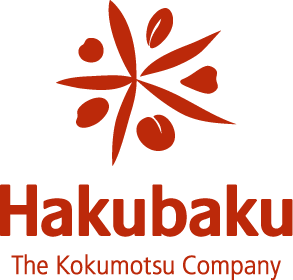Frequently Asked Questions
Where can I find my favourite Hakubaku noodles?
In the Asian or noodle aisle of your local major supermarket Coles and Woolworths, organic stores and Asian grocery stores.
Can people with celiac eat Hakubaku noodles?
As the main ingredient of our noodles is wheat flour, our products are unfortunately no suitable celiacs.
Are your Japanese noodles authentic?
Yes, our parent company, Hakubaku Co. has over 70 years of noodle making experience and we make all our noodles to traditional recipes.
Are Hakubaku noodles easy to cook?
Absolutely! All you do is simmer in boiling water for a few minutes in the same way you would cook spaghetti or any other pasta. Just follow the instructions on your pack.
Are people with food allergies likely to be affected by Hakubaku noodles?
Our products use a production line with items containing wheat flour, egg powder, soy flour and buckwheat powder. Please consult medical advice should you have any concerns.
Do you run factory tours?
As we are a working factory, we do not run tours for the general public. Our apologies as we know how interesting it is to know how things are made.
Are all your noodles certified organic?
Yes, our noodles are all certified as organic by the Australian Certified Organic, USDA and JAS. Please see the logo appropriate to your region on the pack.
Do you sell direct from the factory?
No, we do not. You should be able to find our products in your local store, but if you have difficulties, please contact us.
Are your noodles Kosher-certified?
Yes, our Organic Somen, Udon, Soba, Ramen, Cha soba and Yakisoba noodles are Kosher-certified. We are certified by Kosher Australia and their logo is on all of the packets.
Why is there so much salt in Hakubaku noodles?
The salt is necessary for the authentic production process. However, if you rinse the noodles correctly at the end of the boiling process, you will remove the majority of the salt.
How much water is needed for boiling the noodles?
Plenty. You will need at least 1.5 litres of water per bundle of noodles.
Do you use all Australian ingredients in your manufacture process?
No. Our organic wheat is entirely Australian grown, so our Somen and Udon are All-Australian but we are unable to source the quantities of organic buckwheat that we require for our Soba from Australia. We also have to look elsewhere for our sources of green tea powder and our mineral salts.
Are you an Australian company?
We are an Australian company that is a subsidiary of our Japanese parent company, Hakubaku Co. Limited., which is the biggest dried noodle manufacturer in Japan.
Doesn't Soba just mean buckwheat?
No, it does not.
There can be confusion when you see the word ‘soba’ written separately. Non-Japanese people automatically think it means ‘buckwheat’, but actually, the Japanese word Soba, when added to descriptive words generically means long, thin noodles. For example: Yakisoba means ‘stir-fry noodle’. Chasoba means ‘Green tea noodle’.
